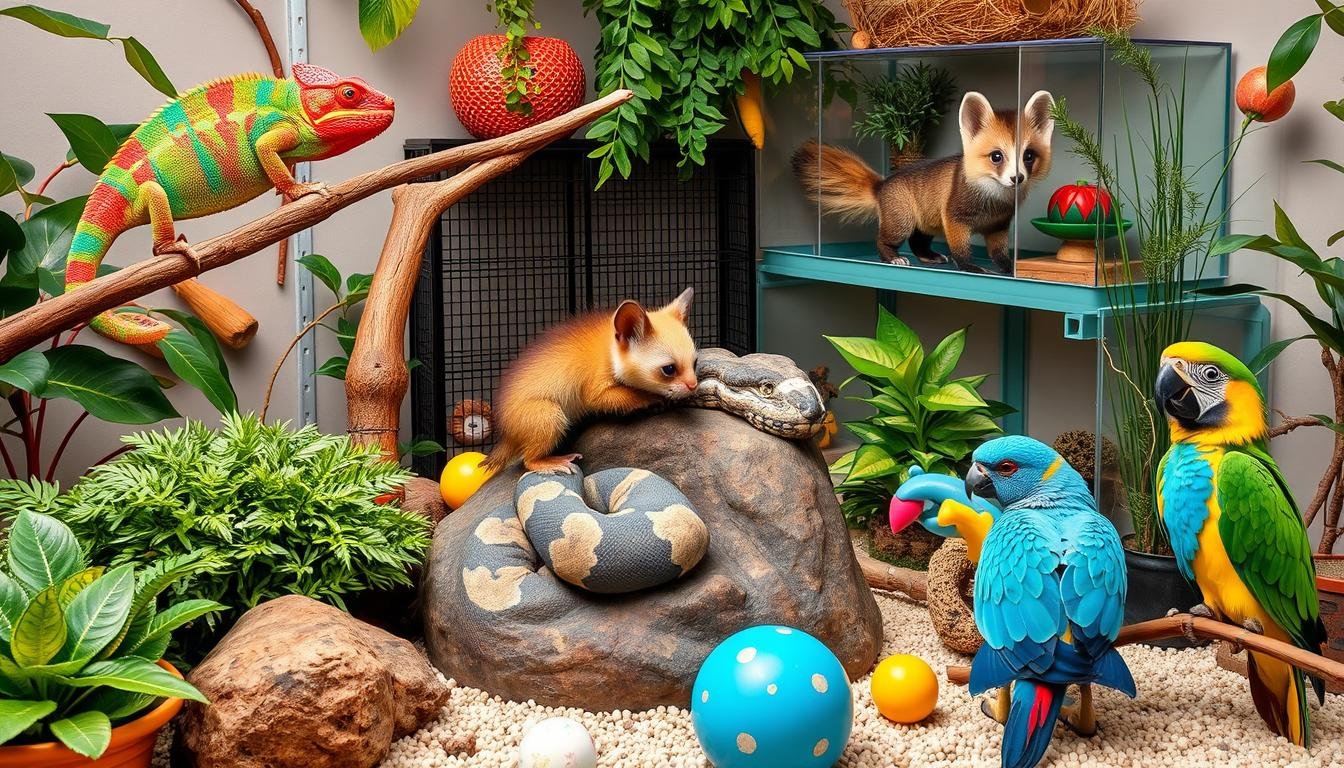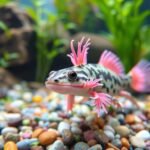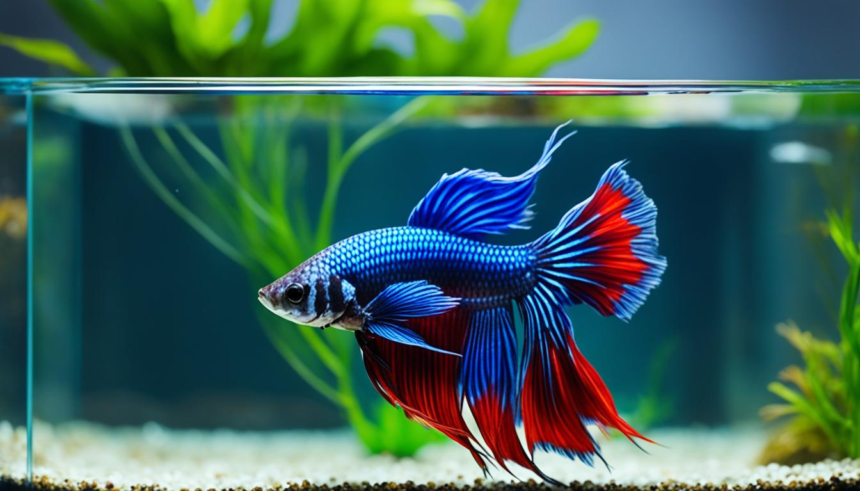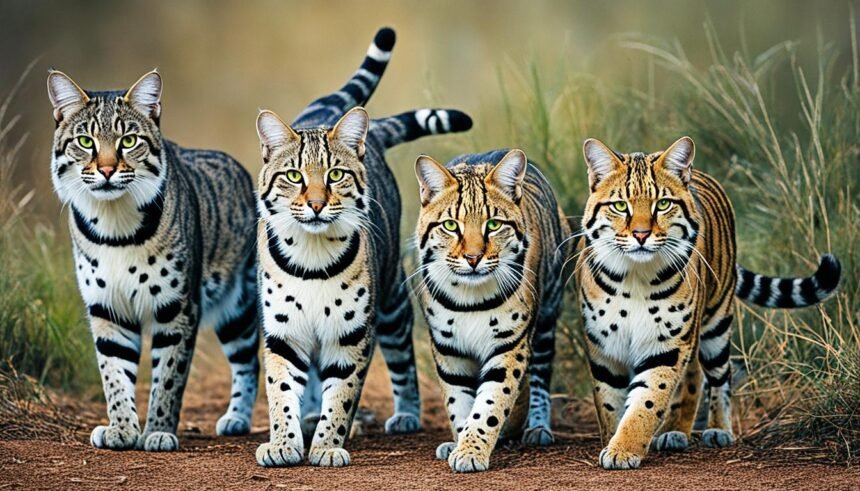Introduction to Exotic Pet Care
Caring for exotic pets connects us deeply to nature. Their unique traits and behaviors make them special. It’s crucial to care for them properly to keep them healthy and happy.
Many people are drawn to these unusual pets. But, it’s important to know their specific needs and risks. This article will share key safety tips and how to keep your pets safe and healthy.
Introduction to Exotic Pet Care
Caring for exotic pets needs special knowledge and planning. They have unique needs for food, environment, and health. Knowing what each species needs is key to their well-being.
Rabbits need high-fiber hay like timothy or orchard grass for their gut health. Ferrets must eat high-protein food to stay healthy. Birds, pocket pets, and some reptiles also need their nails trimmed to avoid problems.
Providing the right environment is also crucial. Reptiles need the right temperature, UVB lighting, and humidity. Birds need safe, natural-looking homes to stay happy and healthy.
Regular vet visits are essential. Exotic pets often hide signs of illness. This means they need special care for health issues like metabolic bone disease in reptiles or breathing problems in birds. Keeping them healthy involves a balanced diet, enrichment, and vet visits.
Exotic pets are becoming more popular, thanks to social media. But, new owners often underestimate the care needed. Learning about exotic pet care is important for their health and happiness.
Understanding Exotic Pets
Exotic pets are gaining popularity for their unique traits and interesting behaviors. It’s important to know their needs to care for them properly.
What Defines an Exotic Pet?
An exotic pet is any animal not usually kept as a pet. They often come from the wild and don’t have domestic ancestors. This includes reptiles, amphibians, birds, and small mammals. They need special care and knowledge to keep them safe and healthy.
Common Types of Exotic Pets
Many types of exotic pets are popular among fans:
- Reptiles: Snakes, lizards, and turtles need specific homes, food, and temperatures.
- Birds: Parrots, cockatoos, and macaws are smart and social, needing lots of interaction.
- Small Mammals: Ferrets, hedgehogs, and sugar gliders need special homes and diets.
Why Exotic Pets Require Specialized Care
Exotic pets need care that’s different from regular pets. They have special diets and need safe handling. Their homes must be secure and interesting to keep them happy.
The exotic pet trade is a big business in the U.S., worth billions of dollars. This shows how much people value these unique animals.
How to Handle Exotic Pets Safely
Handling exotic pets can be rewarding but also challenging. It’s important to understand their needs and use the right techniques. This ensures safety for both the pet and the handler. Getting regular practice and advice from vets or experts can improve your skills.
General Handling Tips
Here are some key tips for safely handling exotic pets:
- Calm Environment: Make sure your pet’s environment is stress-free to prevent sudden movements and anxiety.
- Support Properly: Give gentle yet firm support to help your pet feel secure.
- Regular Practice: Regular handling helps your pet get used to human interaction and handling.
- Supervision: Always watch your pet when they’re outside their cage to prevent dangerous situations.
- Expert Guidance: Get advice from vets or experienced handlers for specific handling instructions.
Species-Specific Handling Techniques
Different exotic pets have unique handling needs. Here are some common techniques for popular species:
| Animal | Handling Technique |
|---|---|
| Birds | Support body and feet, avoid squeezing the chest. |
| Reptiles | Handle gently, avoid sudden movements, support the whole body. |
| Small Mammals (e.g., Rabbits and Guinea Pigs) | Hold securely, support their hindquarters, never pick up by the ears. |
| Amphibians | Handle with wet hands to avoid damaging their sensitive skin. |
Avoiding Common Mistakes
To keep pets safe and avoid injuries, it’s important to know common mistakes:
- Improper Restraint: Don’t hold your pet too tightly as it can cause stress or injury.
- Neglecting Environment: Make sure the environment meets the species’ needs for temperature, humidity, and lighting.
- Ignoring Signs of Stress: Watch for behavioral cues that show your pet is stressed or uncomfortable.
- Overhandling: Limit handling sessions to avoid overwhelming your pet.
Regular Observation: Keep an eye on food intake, stools, urine production, and daily behaviors. If you notice any issues, seek vet help quickly.
Preparing a Safe Environment for Your Exotic Pet

Creating a safe and welcoming space for exotic pets is key. It’s not just about picking the right enclosure. You also need to control the climate and prevent hazards to keep your pet happy and healthy.
Choosing the Right Enclosure
The first thing to do is pick the right enclosure for your pet. It should match the pet’s natural behavior and needs. For example, a terrarium for a lizard or a big aviary for a bird is best. Make sure it’s safe and can withstand wear and tear.
Climate Control: Temperature, Humidity, and Lighting
Keeping the right climate is vital for your pet’s health. Pets from warm places, like reptiles, need heat to stay comfortable. You also need to control humidity levels, especially for amphibians and some reptiles.
Lighting is another important factor. Many pets need UVB light to stay healthy. Setting up these systems is crucial for a good environment.
Hazard Prevention
Keeping your home safe from hazards is important for your exotic pet. Make sure wires, small objects, and harmful substances are out of reach. Regular cleaning and vet visits are also key.
By spending time with your pet and providing enrichment, you help keep them happy and healthy. This is important for their mental and physical well-being.
Diet and Nutrition for Exotic Pets
It’s key to make sure exotic pets get the right food for their health and long life. Each species has its own food needs. We must meet these needs to avoid health problems and keep them well.
Species-Specific Dietary Needs
Knowing what each exotic pet needs to eat is very important. Reptiles, for instance, need different foods. Carnivores eat whole prey, while plant-eaters get leafy greens and fruits.
Birds need a mix of pellets, seeds, fruits, and veggies. Rabbits mainly eat hay, showing how important fiber is for them.
Common Nutritional Issues
Not giving exotic pets fresh foods can cause nutrient shortages. Too much fat or sugar is another big problem. It’s important to control portions to keep them healthy.
Some foods are bad for pets. Avocado is bad for birds, and chocolate is dangerous for many. Knowing what’s safe and what’s not is key to keeping pets safe.
Supplementation and its Importance
Adding supplements is vital for exotic pets’ diets. Many owners mix fruits, veggies, and supplements to ensure a balanced diet. For some, like reptiles, UVB lights help make vitamin D.
Regular blood tests can help spot any diet problems early. This can prevent issues like calcium imbalances and diseases.
| Species | Dietary Needs | Common Issues | Supplements |
|---|---|---|---|
| Reptiles | Carnivorous: Whole prey items; Herbivorous: Leafy greens, fruits | Calcium deficiency | Calcium supplements, UVB lighting |
| Birds | High-quality pellets, seeds, fresh fruits, vegetables | Nutritional deficiencies from seed-only diets | Varied diet including fresh produce |
| Rabbits | High-fiber, mainly hay | Digestive issues from low-fiber diet | Fiber-rich supplements if needed |
Enrichment and Mental Wellbeing
Taking care of a pet’s mental health means giving them lots of exotic pet enrichment. Activities that match their natural behaviors help a lot. Pets in captivity can get stressed, anxious, and even depressed, which can make them sick.
Making their environment more interesting helps them stay active and behave naturally. There are many ways to enrich their lives, like using food puzzles or giving them new smells to sniff. For example, parrots and ferrets love to forage for food.
Sensory experiences are also great. Animals can enjoy sunlight, music, or even watching TV. Giving them new toys or objects to play with keeps them from getting bored.
Here are some key things to remember for a good environment:
- Temperature Regulation: Reptiles need the right temperature to stay healthy. Without it, they can get sick.
- Proper Environment: The wrong place can cause problems like egg binding or feather pecking in reptiles.
- Hiding Places: Hiding spots are important for prey animals to feel safe.
Regular enrichment activities boost both mental and physical health in pets. The goal of exotic pet enrichment is to keep them happy and healthy by reducing stress.
Signs of Illness in Exotic Pets
Exotic pet owners need to watch closely for signs of illness. These animals often hide their sickness. Spotting small changes in behavior, appetite, or looks is key to catching illness early.
- Common signs of illness in exotic pets may include changes in behavior, appetite, or activity levels.
- Exotic pets like birds may exhibit signs of illness such as feather plucking or excessive screaming.
- In reptiles, signs of illness can manifest as changes in skin color, appetite, or mobility.
- Sick birds may display symptoms like fluffing up, decreased vocalization, or changes in droppings.
- Ferrets might show signs of illness through lethargy, decreased appetite, or diarrhea.
- Rabbits may exhibit illness signs like dental problems, gastrointestinal issues, or changes in urination patterns.
- Loss of appetite or changes in drinking habits can be a symptom of illness in exotic pets.
- Changes in fecal output, such as diarrhea, constipation, blood, or unusual coloration, can indicate health problems.
- Respiratory issues like wheezing, frequent sneezing, labored breathing, or discharge from the nostrils or mouth are common in exotic pets.
- Eye or nasal discharge, or swelling and redness around these areas, can indicate infection.
- Behavioral changes such as aggression, unusual vocalizations, or decreased activity can signal illness in exotic pets.
- Weight loss or gain could indicate metabolic disorders or parasites.
- Swelling, lumps, or bumps should be examined by an exotics veterinarian as they could signal serious health issues.
It’s vital to watch for early signs of illness in exotic pets. Regular weighing can help spot chronic diseases early. The Animal Emergency & Referral Center of Minnesota’s Avian and Exotic Medicine Service treats many exotic pets.
By watching your pets closely, you can catch problems fast. This helps them get the care they need quickly.
| Species | Common Signs of Illness |
|---|---|
| Birds | Feather plucking, excessive screaming, fluffing up, decreased vocalization, changes in droppings |
| Reptiles | Changes in skin color, appetite, mobility, shedding problems |
| Ferrets | Lethargy, decreased appetite, diarrhea |
| Rabbits | Dental problems, gastrointestinal issues, changes in urination patterns |
| Small mammals | Difficulty eating, chewing, or swallowing; weight changes |
Spotting signs of sick pets is crucial for their health. Regular vet visits can catch health issues early. By focusing on exotic pet health, owners can help their pets live long, happy lives.
Regular Veterinary Care for Exotic Pets

Regular vet visits are key for exotic pets’ health. Just like dogs and cats, they need regular check-ups and special care. Animals like lizards, snakes, birds, and rodents have unique needs that require specialized vet services.
Importance of Specialized Veterinary Care
Exotic pets have needs that differ from common pets. Specialty vets are trained to care for these pets. They offer advice on diet, habitat, and treat health issues specific to each species.
Understanding an exotic pet’s normal behavior and characteristics is vital to identifying health issues early on and seeking necessary veterinary care.
Proper nutrition, habitat size, and environmental conditions are crucial for exotic pets’ health. Regular vet visits include health checks and advice on creating the best living environment.
Routine Health Check-ups
Annual wellness exams, blood work, and parasite screenings are part of routine care for exotic pets. These health checks help monitor their health and catch illnesses early. Since exotic pets often hide signs of illness, these visits are vital.
- Annual wellness examinations
- Parasite screenings
- Blood work
- Diet and nutrition evaluations
- Behavior and habitat assessments
Exotic pets can get stressed during vet visits. It’s best to transport them in a solid-sided container and use warm water bottles for comfort. By being vigilant and maintaining a routine, owners can ensure their pets live long, happy lives.
| Exotic Pet Type | Key Care Needs | Common Health Issues |
|---|---|---|
| Lizards | Proper lighting, temperature control, diet | Metabolic bone disease, parasites |
| Snakes | Temperature and humidity control, secure enclosure | Respiratory infections, mites |
| Birds | Balanced diet, mental stimulation, social interaction | Feather plucking, respiratory infections |
| Rodents | Species-specific diet, gnawing opportunities | Dental problems, obesity |
Proper Hygiene and Cleaning for Exotic Pet Habitats
Keeping exotic pets clean is key to their health and safety. It means cleaning their homes, using safe disinfectants, and staying clean ourselves. This helps stop diseases from spreading.
Maintenance of a Safe and Clean Environment
Cleaning your exotic pet’s home often is a must. Each pet needs different care:
- Fish tanks: Change the water weekly to keep it clean and healthy.
- Reptile enclosures: Clean them out monthly or more often if needed.
Regular cleaning gets rid of bad smells and keeps your pets happy. Use safe cleaners to avoid harming them.
Avoiding Zoonotic Diseases
To avoid diseases, keep your pets and yourself clean. Here’s how:
- Wear gloves when cleaning to avoid touching harmful bacteria.
- Wash your hands well after touching pets or their homes.
- Keep new pets separate before letting them meet others.
Seeing the vet often helps catch diseases early. This keeps your pets healthy.
| Pet Type | Cleaning Frequency | Disinfectant Type |
|---|---|---|
| Fish | Weekly | Water conditioner |
| Reptiles | Monthly | Pet-safe disinfectant |
| Rodents | Bi-weekly | Vinegar solution |
Following these steps keeps your exotic pets clean and healthy. It helps them live longer and better.
Social Interaction and Behavioral Needs
It’s key to know how exotic pets need social interaction and what they like to do. This helps them stay happy and healthy. Knowing if they need friends like them or people to talk to is very important.
The Importance of Socialization
Socializing exotic pets is very important. For example, guinea pigs do better with friends of their own kind. Many birds love to spend time with people and get to know them.
But, some reptiles and small mammals don’t like to be handled a lot. It’s important to know what each pet likes. Playing, petting, and grooming them can make them happy and well-adjusted.
Handling Social Exotic Pets
When you handle social pets, you need to be patient and gentle. Each pet is different and likes things in their own way. Birds like to play and be touched gently, while reptiles need to get used to being handled slowly.
Make sure their homes are safe and big enough. They also need the right light, temperature, and air. By doing this, you can make them feel less stressed and more happy around people.
| Species | Preferred Interaction | Handling Tips |
|---|---|---|
| Guinea Pigs | Companion of the same species | Gentle handling, regular grooming |
| Birds (e.g., Parrots) | Regular human interaction | Interactive play, talking, gentle contact |
| Reptiles (e.g., Bearded Dragons) | Minimal handling, human interaction | Gradual acclimatization, proper housing conditions |
Training and Behavior Management
Training exotic pets and managing their behavior is key to their health and safety. These pets might be quiet, making it hard to know what they like. But, understanding their preferences can build trust and a strong bond.
Most exotic pets love food, which helps in training them. Handling them carefully, especially at certain times, builds trust. Gradually introducing them to others helps manage their behavior.
Teaching them new skills, like mazes, boosts their confidence. But, it’s important to be consistent in training. Being steady near their enclosure and introducing them to new places helps them feel comfortable.
Exotic pets may seem shy at first but will get used to their new home. Food can help them trust their owners more. Not disturbing their sleep or meal times is important. Introducing them to new places and people is also key.
Veterinary hospitals like All Critters Veterinary Hospital are crucial for their care. They help with behavior, diet, habitat, and health. Understanding physical issues and environments is key to solving behavior problems.
| Statistics Data | Details |
|---|---|
| Quiet Behavior | Challenging to recognize likes and dislikes |
| Food Motivation | Using high-value treats can aid in training exotic pets |
| Interaction | Gradual physical interaction and introduction to new environments aid in building trust |
| Specialized Veterinary Care | Addresses behavior, diet, habitat, and overall health needs |
| Behavior Problems | 78% arise from maladaptive learning; 24% from physical dysfunctions |
Managing pet behavior involves understanding and changing their actions. Techniques like Applied Behavior Analysis (ABA) help. It’s all about the environment and how it affects their behavior.
Training exotic pets effectively involves a collaborative approach with skilled veterinarians, behavior analysts, and consistent owner participation.
In the end, training and managing exotic pets leads to a happy, healthy life for them.
Conclusion
Exploring exotic pet care demands dedication, deep knowledge, and a readiness to learn. It’s crucial to understand the special needs and challenges of these animals. A safe space, the right diet, and regular vet visits are key to their health.
It’s also vital to fight against the illegal wildlife trade. This trade is deadly for animals and harms our planet. Many animals die soon after being caught, showing we need strong laws and enforcement.
Knowing about zoonotic diseases and avoiding too much interaction with pets is important. This helps keep both humans and animals safe. Proper care not only makes pets happy but also keeps everyone and the environment safe.
By following best practices and getting advice from experts, exotic pet owners can make a big difference. We can all work together to ensure a safe and happy life for these amazing animals.
FAQ
What defines an exotic pet?
An exotic pet is not a domestic animal. It includes many animals like rodents, reptiles, and birds. They need special care and understanding of their needs.
What are the common types of exotic pets?
Exotic pets include reptiles, birds, amphibians, and small mammals. Examples are snakes, parrots, frogs, and ferrets.
Why do exotic pets require specialized care?
Exotic pets need special care because they are not domesticated. They have specific diets and environments. This ensures their health and happiness.
What are some general handling tips for exotic pets?
Handle exotic pets gently but firmly. Avoid sudden moves and make them feel secure. Always learn about your pet’s needs and get advice from experts.
What specific handling techniques are needed for different species?
Each species needs its own handling method. Snakes should be supported, and birds handled carefully to avoid wing injuries. Knowing these needs is important.
How can I avoid common mistakes when handling exotic pets?
Avoid mistakes by practicing handling and learning about your pet. Get advice from experts. This keeps your pet safe and happy.
How do I choose the right enclosure for my exotic pet?
Choose an enclosure based on your pet’s size and habitat. It should be safe, spacious, and have the right items like hiding spots and water dishes.
What are the climate control requirements for exotic pets?
Climate control means keeping the right temperature, humidity, and lighting. For example, reptiles need heat lamps and specific humidity levels.
How can I prevent hazards in my exotic pet’s environment?
Keep the enclosure safe by removing hazards like sharp objects and toxic plants. Regular checks and adjustments prevent accidents.
What are species-specific dietary needs for exotic pets?
Each species has its own diet needs. Herbivores need vegetables, while carnivores need meat. Knowing these needs is important for your pet’s health.
What are common nutritional issues in exotic pets?
Issues include obesity, vitamin deficiencies, and unbalanced diets. A vet knowledgeable in exotic nutrition can help keep your pet healthy.
Why is supplementation important for exotic pets?
Supplementation ensures exotic pets get all the nutrients they need. This includes vitamins and minerals for their health and growth.
How can I provide enrichment for my exotic pet’s mental wellbeing?
Provide enrichment with toys, puzzles, and climbing structures. These activities reduce boredom and stress, improving your pet’s mental health.
What are the signs of illness in exotic pets?
Signs of illness include changes in behavior, appetite, or appearance. Watch closely and seek vet help at the first sign of illness.
Why is specialized veterinary care important for exotic pets?
Exotic pets have unique health needs. Specialized care ensures they get the right treatment and advice on diet and habitat.
What is involved in routine health check-ups for exotic pets?
Routine check-ups include physical exams, diet assessments, and discussions about environment. These help catch health issues early.
How can I maintain proper hygiene in my exotic pet’s habitat?
Clean the enclosure regularly with proper disinfectants. Practice good hygiene to prevent zoonotic diseases and keep your pet healthy.
How do you avoid zoonotic diseases with exotic pets?
Avoid zoonotic diseases by cleaning habitats, using disinfectants, and practicing good hygiene. Regular vet care and avoiding wild animals also helps.
Why is social interaction important for exotic pets?
Social interaction prevents loneliness and psychological issues in many exotic pets. Knowing their social needs is key for their mental health.
How do I socialize and handle social exotic pets properly?
Socialize and handle social pets with regular interaction. Use gentle handling and positive reinforcement to foster good relationships and reduce stress.
What are the best practices for training and managing exotic pet behavior?
Use consistent training, positive reinforcement, and understand natural behaviors. Proper training manages stress and safety concerns, strengthening the bond with your pet.













